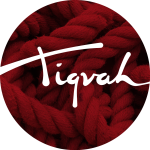I read this in my devotional a while back:
“Remember that from the point of view of the Great Worker, one poor tool, working all the time, but doing bad work, is of small value compared with the sharp, keen, perfect instrument, used only a short time but which turns out perfect work.”
It reminded me of a story I heard; I don’t remember when or the setting, so if you know this story and I flub it up, forgive me in advance. There were these lumberjacks out on a job cutting trees, and one day, this brash young man challenged one of the others, a slightly older, definitely more experience worker, to see who could turn out more lumber. He had seemingly unfailing energy and was convinced he could cut more wood than anyone around. The other worker agreed, and they began early the next day. The brash young man went full speed, cutting more wood than he remembered ever cutting. After a while, he noticed the other man stopped cutting every hour or so for a short time, and then continued on. He knew at that rate, he would surely have more logs than the older man, and pressed on. They both broke for a mid-day meal, but the boastful man rushed back to his work, leaving the older man behind. At the end of the day, he looked proudly at his pile and went to boast to his competitor. He was shocked, though, to find that his pile was half again as big as his own. He didn’t understand how this could have happened! He finally asked the man how he managed to cut more wood, though he stopped more frequently. He answered that the rest restored to him more strength to continue, and while he rested, he was sharpening his ax. Because his ax was always sharp, his strokes were more efficient. It was the times of rest that strengthened him to accomplish more.
Some people say, “Work smarter, not harder.” There is a reason for rest, or YHWH wouldn’t have made a point to create it into our week. Our bodies know it, and yet sometimes we are convinced that pushing ourselves to the limit all the time will get more work done. What a lie that is. Phrases in Psalm 23 jump out at me: He makes me lie down in green pastures, and You prepare a table before me, in the presence of my enemies. There is something about taking time to smell the flowers, slowing down, resting a while, eating in the face of obvious threat, that drives the enemy wildly insane. It is at once quite funny and quite serious, because once we know and absorb this truth, it’s great to use that particular weapon. But if we are unaware, he will send distractions, and before we know it, we are caught up in a whole lot of busyness, and waiting for rest to find us, instead of making rest our priority.
Rest, like any other weapon, takes skill and discipline to use. Try it out, and see how differently the battle goes…


